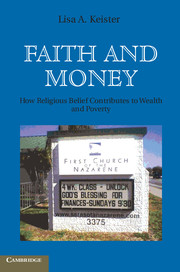6 - Upward Mobility
Published online by Cambridge University Press: 05 June 2012
Summary
Social change can provide valuable insight into the processes that generate well-being. When a person or, perhaps more importantly, an entire group changes social position, the events and conditions that created that change may provide clues into basic but otherwise difficult-to-study social processes. Imagine a simple example of a group that experiences an increase in average education levels; this change is likely to lead to a subsequent change in income for both individuals and households and, ultimately, to an increase in wealth. If other factors are held constant, this change may underscore the conditions under which educational attainment affects income and wealth attainment or mobility. Social mobility is the general term used to describe movement in a person or a group's social standing over time and usually refers to changes in education, income, occupation, wealth, and other SES measures. Wealth mobility – a change in position in the wealth distribution – is a specific type of social mobility, one that has been relatively rare throughout most of history. Upward wealth mobility, as the term suggests, implies an improvement in conditions over time, whereas downward wealth mobility is a decline in well-being. Intergenerational wealth mobility refers to changes in wealth status between parents and children; intragenerational wealth mobility is changes in wealth within a single generation. Both intergenerational and intragenerational mobility are still unusual today, because social reproduction is a powerful generator of stability. As I pointed out in Chapter 2, inheritance, cross-generational reproduction of educational and occupational status, parenting styles, and educational processes lead to social reproduction and limit wealth mobility.
- Type
- Chapter
- Information
- Faith and MoneyHow Religion Contributes to Wealth and Poverty, pp. 136 - 162Publisher: Cambridge University PressPrint publication year: 2011



